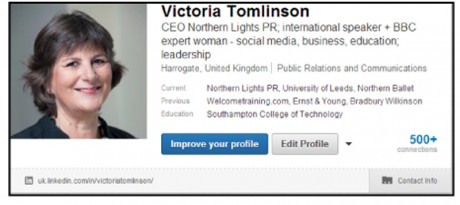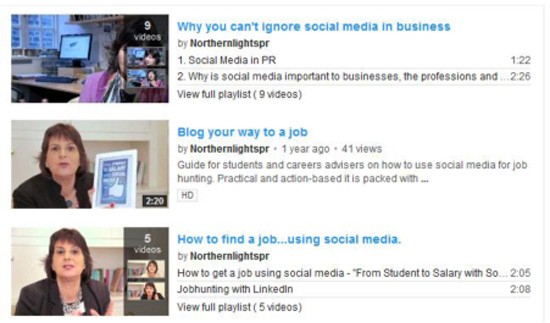Do you think like a search engine? Why it will get you to the top of Google searches
7 February 2014 By Northern Lights

 If you want to appear at the top of Google searches, you don’t need to rely on your web and IT teams to get you there. Even the least techy of people can do lots themselves.
If you want to appear at the top of Google searches, you don’t need to rely on your web and IT teams to get you there. Even the least techy of people can do lots themselves.
But you need to start thinking like a search engine to make it work.
First of all, you need to understand how Google works. Three things that Google really likes are
- Really good ‘content’ that is useful and written to be helpful – tips, insights, discussions
- Keywords – the words and phrases that people are searching for, which could be ‘Top UK PR companies’ or ‘Where should internal communications sit – HR or marketing?’
- Sharing – Google rates ‘stuff’ on the internet that gets shared a lot, on Twitter, Google+, Pinterest, LinkedIn. That sends Google a message that people are rating the blog or comment on Twitter
Of course, this is slightly simplified, but it will do to help you get started.
So what do you do? Here we cover the things that most business people can easily do – if you want some of the slightly more technical things, Neil Patel of Quicksprout has a good blog on this too.
1. Identify the keywords for your business
What do your customers search for on the internet?
Let’s give some examples
- Best plumber in Seattle
- How do I fill in my tax return?
- Abu Dhabi leadership coaches
- Internal communications specialists
- Wedding hairstyles
- Business banks in Harrogate
Or, as Google puts on its Adword site
- Fresh coffee near Victoria Station
This shows the importance of really listening to your customers and not only thinking like Google, but thinking like your customers. Every time a client asks you to explain something, or a customer says ‘I’ve never quite understood ….’, there is an opportunity to write something to help them and put it on the internet. That could be on your website, but even better write blogs to help them with those words in them.
Our associate, Jonny Ross, explains keywords in more detail in this blog.
Google has Keyword Planner to help you check what are the best words and phrases for your business.
You can also start typing phrases into Google and see what the predictor starts suggesting – that gives you ideas. I did that for the heading of this blog.
Or this is something that we can help you with.
2. Include keywords on lots of sites
Think where you have got information about you or your business on the internet.
Of course, your website, but you would be surprised at where else there are opportunities
- Your LinkedIn profile – have you used the keywords in your title and in the summary?
- Are you doing any voluntary work, do you sit on a board? Make sure your profile has keywords in it and a link to your website (you are probably doing this for free, so this is a way that voluntary organisations can thank people who help them)
- Your Twitter profile – is it fun or strategic? Could you include keywords that people search on?
- Other social media accounts – Facebook, Pinterest, Google+ and more
- Are you in any directories? Check the wording
You will see I have thought about keywords in my title on LinkedIn, here
3. Write blogs for your customers and clients
I have written a lot about the importance of blogs, which should be at the heart of your strategy to get to the top of Google.
I mentioned the phrase, above, on purpose about where internal communications should sit. This was a question which a client asked me last year and I thought ‘how interesting’ and put it out for discussion on LinkedIn and Twitter. We got really thoughtful responses and I wrote a blog on just this subject ‘Where should internal communications sit – HR or marketing?’
If you type that into Google, see what comes up top. Yes, our blog! And it’s not that we have a huge traffic to our website – it’s not bad but we will never have as much as say Marketing Week and HR Magazine that we are above.
See the screengrab below.
Again, you need to think like a search engine when writing your blog – from the heading to the way it is structured and including keywords in it.
Our ebook on How to Write a Top-Ranked Business Blog has all the inside secrets of writing a blog for your customers and Google. Carmel Harrison, who does a lot with the IOD, was kind enough to say it ‘gives sound clear advice and helps beginners work their way from start up to sounding out’.
4. Post on Google+
Don’t forget Google+. It’s not a particularly popular site, especially in the business community. But it is important.
Google is keen to get it to become the next Facebook or LinkedIn – and to do that, it is over-ranking content posted on it.
5. Videos, video blogs and podcasts
When you upload a video, vlog or podcast, make sure you write up what is in it. Think about a good heading for the video clip and detail what is in it – thinking of what people might search for. You’ll see below we try to think of this when we post to YouTube.
6. Post content with keywords
When you post comments on Twitter, LinkedIn or Google+, think about how to include keywords in those comments – but it’s really important to do this in a natural way. If you can’t, don’t force keywords in that time.
All of these things will help you to be found for your services, on issues facing your potential clients, and when people search for types of companies – for tenders or whatever.
It does work. We have had really great new business from universities (Bournemouth whom we didn’t know but we came top when they were searching for PR and universities); crisis communications and internal communications. And if you look on our blog you will see we have blogged on these topics. Actually we didn’t do them to come top of Google, but to help our clients with thoughts and tips – and in the end that is the best content to post.
If you get it right, it will be a virtuous circle – you write to be helpful and not surprisingly these are the issues facing your potential new clients, who search and find you and want to do business with you.
This all gets easier the more you do it – and if you do it enough, soon you will think like a search engine!





